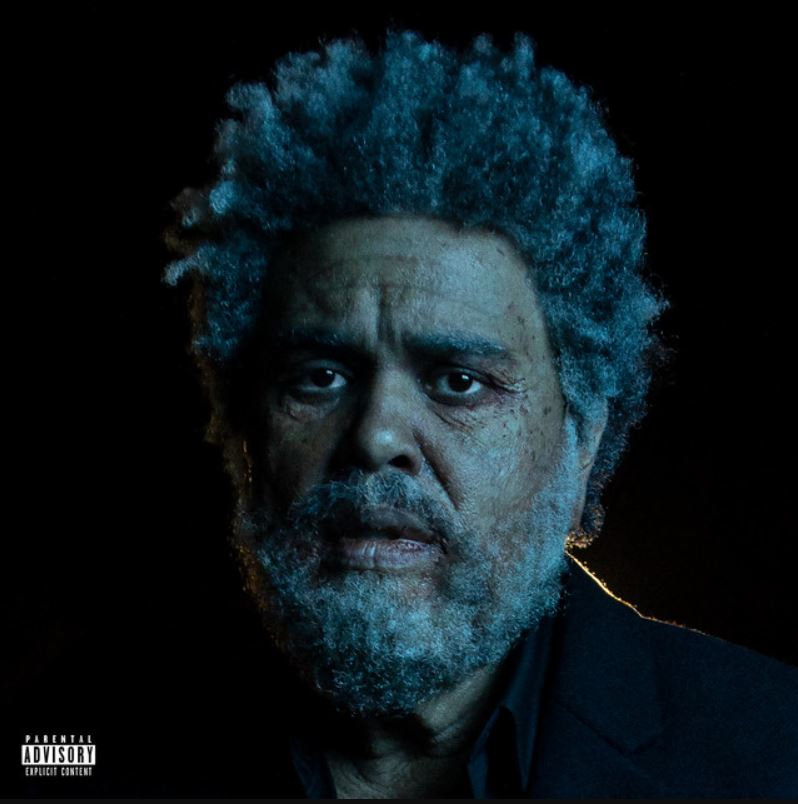The Weeknd tunes into the afterlife — or lack thereof — on ‘Dawn FM’
The Weeknd dropped his fifth studio album “Dawn FM” on Friday, Jan. 7.
The Weeknd has taken his efforts to revive 1980’s-esque sound in pop music to new heights in his fifth studio album, “Dawn FM,” released to wide and immediate acclaim on Friday, Jan. 7. A kaleidoscope of pulsating synths, funky guitars and gnawingly vulnerable lyricism, the sonic war against mortality functions as a timeless addition to what is already a lighting-in-a-bottle example of a quality discography borne within the modern era of mainstream pop.
The album’s title draws from the entire project’s creative premise — a series of soul-bearing stories narrated in the format of a radio station’s block of “commercial ‘free yourself’ music,” complete with classic transitional radio jingles identifying “103.5 Dawn FM,” an eventual advertisement for the afterlife and actor Jim Carrey as the DJ at the helm of it all.
Documenting a journey through existentialism into a reluctant reckoning with afterlife, the record uses ‘80s-inspired synths and melodies to explore each vein extending from Abel Tesfaye’s battle through a multifaceted darkness. Thematically, its tumultuous visions of toxic relationships, guilt-ridden feelings of inadequacy and uncertain fear regarding what comes after death is altogether best summarized by the question posed at the project’s introduction: “after the light, is it dark? Is it dark, all alone?”
This is hardly Tesfaye’s first foray into concept albums — recall the visual accompaniment to 2020’s “After Hours,” a series of music videos chronicling a thrill ride gone wrong and the subsequent series of dramatic reconstructive surgeries — nor is it his first attempt at producing art reflective of the 1980’s. His smash hit single “Blinding Lights” referenced the same era sonically, and proceeded to break the record for the longest presence on the Billboard Hot 100 chart — proving there was a hunger in his audience for more music of the nostalgic variety.
“Dawn FM” brandishes an even further emboldened nod to pop of a different era. Highlight moments see Tesfaye borrowing the overenunciated vocal techniques so beloved within the new wave genre, most notably on tracks like “Sacrifice” and “Gasoline,” the latter of which delves even deeper into this sensation with near-robotic vocal filters furthering the nostalgic effect. “Don’t Break My Heart,” also demonstrates such vocal work, meshing the once futuristic, echoey tones between moments of smooth falsetto that are more of a classic trademark for the artist — so if you’re a tried and true The Weeknd fan on the fence about this dip into techniques of yesteryear, you’ll still feel right at home.
Along with the aforementioned new wave odes, the album’s seventh track is another undoubtable highlight on the record. “Out of Time” is a concoction of disco influences interspersed within the sea of synths, an effort that could have been ripped right from Michael Jackson’s “Off The Wall” album — a fitting comparison, seeing as this song is preceded by a reflective interlude narrated by none other than Quincy Jones, pioneer producer for Jackson and countless others.
The rare weak spot in Tesfaye’s otherwise overwhelmingly impressive discography often comes in the form of monotonous melodies, hooks that blend together and beg for something more distinct to grant them memorability. This album finds itself within this territory somewhere around the middle mark for me, with tracks like “Here We Go…Again” necessitating more than a questionably placed Tyler. The Creator verse to stand out on the record.
In spite of these forgettable hiccups, even the tracks which succumb to this criticism serve an important purpose — in a project clearly designed to be consumed as one piece with artful, intentional consistency at its core, a few songs which might not be sought out on their own still function helpfully in executing the magical whole.
The Weeknd is consistently reinventing himself, and simultaneously influencing shifts in the entire landscape of pop music. This album, perhaps more than any of its predecessors, proves with every searing vocal and funky rhythm that Tesfaye is more than deserving of the title of modern Prince of Pop — and likely any other damn genre he sets his mind to.
★★★★½ / 5
Top tracks: Gasoline, Less Than Zero & Out of Time






